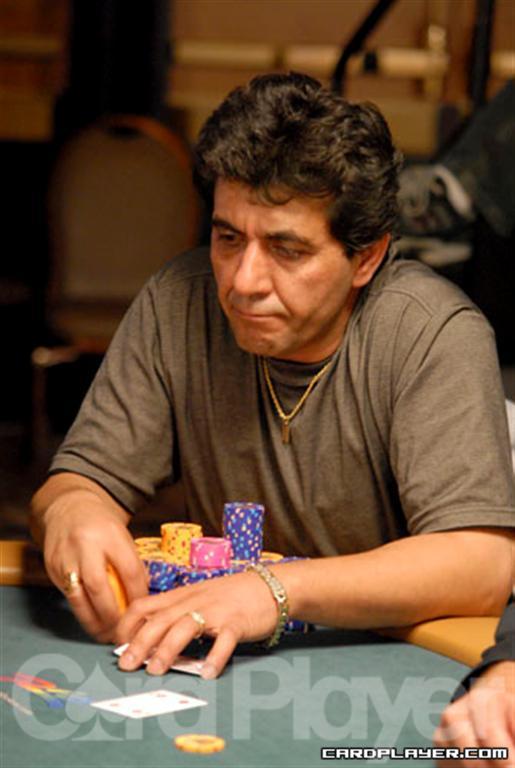 Two years ago, Farzad Rouhani was just one opponent away from his first World Series of Poker title. After letting the bracelet slip through his fingers, Rouhani would not be denied given a second chance. Coming into the final table with a massive chip lead, Rouhani steamrolled his opposition, consisting of top-notch poker professionals, and came away with the bracelet, the title and $232,911.
Two years ago, Farzad Rouhani was just one opponent away from his first World Series of Poker title. After letting the bracelet slip through his fingers, Rouhani would not be denied given a second chance. Coming into the final table with a massive chip lead, Rouhani steamrolled his opposition, consisting of top-notch poker professionals, and came away with the bracelet, the title and $232,911.
Rouhani spoke with Card Player shortly after winning Event No. 10 - Omaha/Stud eight-or-better.
Question: Where do you spend most of your time playing?
Farzad Rouhani: I travel a lot, but if I’m staying at home I’ll mostly play in Atlantic City. I used to play the cash games in Maryland, but they are too small now.
Q: When did you decide to play poker for a living?
FR: I came to this country in November of 1985, straight out of high school to become a doctor. Instead, I became a poker player. (Laughing)
Q: What does this bracelet mean to you?
FR: It really means a lot. Hey, everyone needs the money, but this bracelet is more important. I’ve come so close, so many times. It really feels great to finally get it. Even though I need the money, the bracelet is better. It is something that I can really be proud of.
Q: You played very aggressively throughout the final table, until you got heads up. Can we attribute this more to your style or the rising blinds?
FR: It is definitely part of my style. When I got heads up with Chambers, I didn’t play too aggressively. Why would I want to play aggressive with someone that I have more skill than? Sure, I could have come in for a raise, but in these eight-or-better games, it is all about hitting the flop or getting the right combinations of cards. So, I sat back and waited for him to bet into me and took him down little by little.
Q: What is your better game, Omaha or stud eight-or-better?
FR: I play a lot of cash games and stud eight-or-better is my main game. But I would say that I’m a good Omaha eight-or-better player, too.
Q: Who was your toughest opponent at the final table?
FR: I think that Miami John [Cernuto] was the toughest. He was the only one who I would say knew the games as well as I did, from top to bottom. I tried to stay out of his way and I was glad to see him go in third. I wouldn’t have wanted to play him heads up.







 Two years ago, Farzad Rouhani was just one opponent away from his first World Series of Poker title. After letting the bracelet slip through his fingers, Rouhani would not be denied given a second chance. Coming into the final table with a massive chip lead, Rouhani steamrolled his opposition, consisting of top-notch poker professionals, and came away with the bracelet, the title and $232,911.
Two years ago, Farzad Rouhani was just one opponent away from his first World Series of Poker title. After letting the bracelet slip through his fingers, Rouhani would not be denied given a second chance. Coming into the final table with a massive chip lead, Rouhani steamrolled his opposition, consisting of top-notch poker professionals, and came away with the bracelet, the title and $232,911.